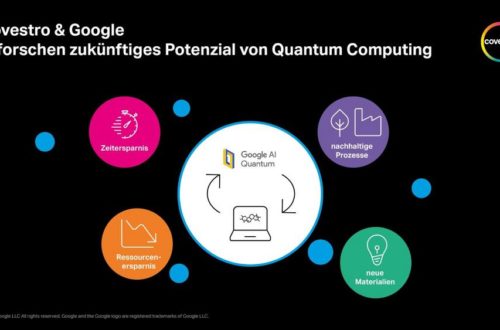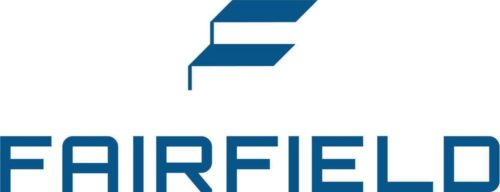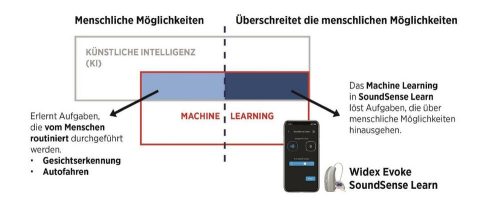AskBio Announces First Patient Randomized in Phase 1 Trial of AB-1005 (AAV2-GDNF) Gene Therapy for Multiple System Atrophy-Parkinsonian Type (MSA-P)
Asklepios BioPharmaceutical, Inc. (AskBio), a gene therapy company wholly owned and independently operated as a subsidiary of Bayer AG, today announced that the first patient has been randomized at the Ohio State University Wexner Medical Center in the Phase 1 REGENERATE MSA-101 clinical trial of AB-1005, a gene therapy being developed as a treatment for multiple system atrophy-parkinsonian type (MSA-P).1 This marks a significant milestone in the development of AB-1005 gene therapy, an adeno-associated viral vector encoding for glial cell line-derived neurotrophic factor (AAV2-GDNF) that is delivered to the putamen, and brings this therapeutic one step closer to potentially reaching patients. AB-1005 is also currently being investigated for the treatment of mild to moderate Parkinson’s disease with the enrollment of the Phase 1b study having now been completed.2
"It means a lot to the MSA community to know that the first patient has been enrolled in the Phase 1 REGENERATE MSA-101 trial," said Philip M. Fortier, MA, President and Executive Director, Defeat MSA Alliance. "There is no cure for MSA, and there are currently no treatments to stop or slow the progression of the disease. This makes it especially hard for patients, given the rapid decline many will experience. Today’s milestone hopefully brings us one step closer to potentially changing the outcome for MSA patients."
MSA-P, which can initially be difficult to distinguish from Parkinson’s disease, is marked by slow movement, lack of coordination, imbalance, and dizziness, among other symptoms, as individuals experience increasing difficulty with movement.3 This is the result of a progressive loss of nerve cells in the brain and spinal cord. Affecting an estimated 100,000–500,000 worldwide, MSA is a rare disease that in most cases seems to occur at random.3,4,5 Symptoms tend to appear in people during their 50s, followed by a rapid progression within 5–10 years.3
"In those with MSA-P, the loss of dopamine producing neurons leads to markedly disabling symptoms, such as profound motor impairment throughout the hands, legs, and trunk. Previous experience with a similar approach in a population of Parkinson’s disease patients has been very encouraging and supported the consideration of this approach in MSA-P. The intent is for GDNF levels in the brain to help preserve dopamine neurotransmission, which is noticeably reduced in MSA-P," said Nicolas M. Phielipp, MD, University of California Irvine, REGENERATE MSA-101 Principal Investigator. "We’re including a genetic sequence in the AAV2 vector that codes for the GDNF protein and are delivering this to the putamen. In this way, we’re targeting local brain cells and adjacent brain tissue that can benefit from the protein’s growth properties. This trial marks the first step toward understanding the potential that GDNF gene therapy might have for patients with MSA-P."
"Enrolling the first patient in our REGENERATE MSA-101 trial is an important step in AskBio’s ongoing work to advance GDNF gene therapy" said Krystof Bankiewicz, MD, PhD, Scientific Chair, Parkinson’s and MSA, AskBio. "The clinical advancement of AB-1005 for the treatment of MSA-P comes as we are gathering the results of our Phase 1 programs in Parkinson’s. Taken together we expect the outcomes of these trials to meaningfully contribute to the body of scientific knowledge related to the potential of GDNF gene therapy in the treatment of these debilitating central nervous system diseases. We believe these data, combined with our exploration of AAV-based intracranial gene delivery and our close collaborations with clinical neurosurgical centers of excellence, will support our goal of successfully developing and eventually delivering to patients these much-needed treatments."
About the Phase 1 REGENERATE MSA-101 Trial
The Phase 1 REGENERATE MSA-101 trial is a randomized, double-blind, placebo-controlled trial designed to determine the safety of AB-1005 (also known as AAV2-GDNF), a gene therapy delivered to the putamen in patients with multiple system atrophy-parkinsonian type (MSA-P).1 The trial will include adults aged 35 to 75 years, with a clinical diagnosis of MSA-P (as defined by current consensus criteria), who are suitable surgical candidates. The trial is expected to enroll up to 9 participants who will be randomized on the day of surgery to receive either the AAV2-GDNF investigational medicinal product or a control surgery. The first patient in the REGENERATE MSA-101 trial was randomized at the Ohio State University Wexner Medical Center, and the trial is currently enrolling patients at the University of California Irvine and the Quest Research Institute, Michigan. Brain Neurotherapy Bio, Inc., an AskBio subsidiary, is the sponsor for REGENERATE MSA-101.For more information, visit clinicaltrials.gov (NCT#04680065), visit askbio.com, or send an email to AskFirst@askbio.com.
About GDNF & AB-1005 (AAV2-GDNF)
Glial cell line-derived neurotrophic factor (GDNF) is a homodimer that is a distantly related member of the transforming growth factor-β superfamily. In midbrain cultures, recombinant human GDNF promoted the survival and morphological differentiation of dopaminergic neurons and increased their high-affinity dopamine uptake. GDNF has long been suspected to be a potential treatment for diseases, such as Parkinson’s, marked by progressive degeneration of midbrain dopaminergic neurons.6 It has been found that there is around 76% less GDNF and 96% loss of dopamine content in postmortem putamen tissue from MSA patients compared to matched controls.7 AB-1005 is an adeno-associated viral vector serotype 2 (AAV2) containing the human GDNF transgene, which allows for stable and continuous expression of GDNF in localized regions of the brain after direct neurosurgical injection with MRI-monitored convection enhanced delivery.8,9
About AskBio
Asklepios BioPharmaceutical, Inc. (AskBio), a wholly owned and independently operated subsidiary of Bayer AG, is a fully integrated gene therapy company dedicated to developing life-saving medicines and changing lives. The company maintains a portfolio of clinical programs across a range of neuromuscular, central nervous system, cardiovascular and metabolic disease indications with a clinical-stage pipeline that includes therapeutics for congestive heart failure, Huntington’s disease, limb-girdle muscular dystrophy, multiple system atrophy, Parkinson’s disease, and Pompe disease. AskBio’s gene therapy platform includes Pro10™, an industry-leading proprietary cell line manufacturing process, and an extensive capsid and promoter library. With global headquarters in Research Triangle Park, North Carolina, and European headquarters in Edinburgh, Scotland, the company has generated hundreds of proprietary capsids and promoters, several of which have entered pre-clinical and clinical testing. An early innovator in the gene therapy field, with over 900 employees in five countries, the company holds more than 800 patents and patent applications in areas such as AAV production and chimeric capsids. Learn more at www.askbio.com or follow us on LinkedIn.
AskBio Forward-Looking Statements
This press release contains "forward-looking statements." Any statements contained in this press release that are not statements of historical fact may be deemed to be forward-looking statements. Words such as "believes," "anticipates," "plans," "expects," "will," "intends," "potential," "possible" and similar expressions are intended to identify forward-looking statements. These forward-looking statements include without limitation statements regarding AskBio’s clinical trials. These forward-looking statements involve risks and uncertainties, many of which are beyond AskBio’s control. Known risks include, among others: AskBio may not be able to execute on its business plans and goals, including meeting its expected or planned clinical and regulatory milestones and timelines, its reliance on third-parties, clinical development plans, manufacturing processes and plans, and bringing its product candidates to market, due to a variety of reasons, including possible limitations of company financial and other resources, manufacturing limitations that may not be anticipated or resolved in a timely manner, potential disagreements or other issues with our third-party collaborators and partners, and regulatory, court or agency feedback or decisions, such as feedback and decisions from the United States Food and Drug Administration or the United States Patent and Trademark Office. Any of the foregoing risks could materially and adversely affect AskBio’s business and results of operations. You should not place undue reliance on the forward-looking statements contained in this press release. AskBio does not undertake any obligation to publicly update its forward-looking statements based on events or circumstances after the date hereof.
1 GDNF Gene Therapy for Multiple System Atrophy. Available at: https://classic.clinicaltrials.gov/…. Accessed November 2023.
2 GDNF Gene Therapy for Parkinson’s Disease. Available at: https://clinicaltrials.gov/…. Accessed: November 2023
3 NIH – Multiple System Atrophy. Available at: https://www.ninds.nih.gov/…. Accessed November 2023.
4 Vanacore N, Bonifati V, Fabbrini G, et al. Epidemiology of multiple system atrophy. ESGAP Consortium. European Study Group on Atypical Parkinsonisms. Neurol Sci. 2001;22(1):97-99.
5 Bower JH, Maraganore DM, McDonnell SK, Rocca WA. Incidence of progressive supranuclear palsy and multiple system atrophy in Olmsted County, Minnesota, 1976 to 1990. Neurology. 1997;49(5):1284-1288.
6 Lin LF, Doherty DH, Lile JD, Bektesh S, Collins F. GDNF: a glial cell line-derived neurotrophic factor for midbrain dopaminergic neurons. Science. 1993;260(5111):1130-1132.
7 Goldstein, DS, Sullivan, P,Holmes, C Bankiewicz, K. Post-mortem and in vivo evidence for ‘‘sick but not dead’’ central dopaminergic neurons in multiple system atrophy: implications for neurotrophic factor gene enhancement therapy. Poster #7. Clin Auton Res (2019) 29:479–546.
8 Heiss JD, Lungu C, Hammoud DA, Herscovitch P, Ehrlich DJ, Argersinger DP, Sinharay S, Scott G, Wu T, Federoff HJ, Zaghloul KA, Hallett M, Lonser RR, Bankiewicz KS. Trial of magnetic resonance-guided putaminal gene therapy for advanced Parkinson’s disease. Mov Disord. 2019 Jul;34(7):1073-1078. doi: 10.1002/mds.27724. Epub 2019 May 30. PMID: 31145831; PMCID: PMC6642028…
9 Kells AP, Eberling J, Su X, Pivirotto P, Bringas J, Hadaczek P, Narrow WC, Bowers WJ, Federoff HJ, Forsayeth J, Bankiewicz KS. Regeneration of the MPTP-lesioned dopaminergic system after convection-enhanced delivery of AAV2-GDNF. J Neurosci. 2010 Jul 14;30(28):9567-77. doi: 10.1523/JNEUROSCI.0942-10.2010. PMID: 20631185; PMCID: PMC2914692.
Bayer AG
Gebäude W 11
51368 Leverkusen
Telefon: +49 (214) 30-1
Telefax: +49 (214) 3064973
http://www.bayer.de
Vice President, Corporate Communications, AskBio
Telefon: +1 (984) 520-7211
E-Mail: pmcnamara@askbio.com
![]()




